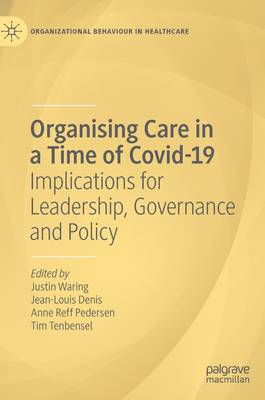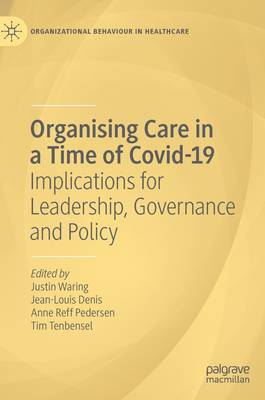
- Afhalen na 1 uur in een winkel met voorraad
- Gratis thuislevering in België vanaf € 30
- Ruim aanbod met 7 miljoen producten
- Afhalen na 1 uur in een winkel met voorraad
- Gratis thuislevering in België vanaf € 30
- Ruim aanbod met 7 miljoen producten
Organising Care in a Time of Covid-19
Implications for Leadership, Governance and Policy
Omschrijving
The COVID-19 pandemic has led to radical transformations in the organisation
and delivery of health and care services across the world. In many countries,
policy makers have rushed to re-organise care services to meet the surge demand
of COVID-19, from re-purposing existing services to creating new 'field' hospitals.
Such strategies signal important and sweeping changes in the organisation of
both 'COVID' and 'non-COVID' care, whilst asking more fundamental questions
about the long-term organisation of care 'after COVID'. In some contexts, the
pandemic has exposed the fragilities and vulnerabilities of care systems, whilst
in others, it has shown how services are organised to be more resilient and
adaptive to unanticipated pressures.
The COVID-19 pandemic presents a rare opportunity to examine empirically and
to develop new theoretical frameworks on how and why health systems adaptto
such unusual and intense pressures. International contributors consider how
responses to COVID-19 are transforming the organisation and governance of
health and care services and explore questions around strategic leadership at
local, regional, national and transnational level. The book offers unique insight
and analysis on the dynamics of policy-making, the organisation and governance
of care organisations, the role of technologies in governing, the changing role of
professionals and the possibilities for more resilient care systems.
Specificaties
Betrokkenen
- Uitgeverij:
Inhoud
- Aantal bladzijden:
- 351
- Taal:
- Engels
- Reeks:
Eigenschappen
- Productcode (EAN):
- 9783030826956
- Verschijningsdatum:
- 9/11/2021
- Uitvoering:
- Hardcover
- Formaat:
- Genaaid
- Afmetingen:
- 148 mm x 210 mm
- Gewicht:
- 648 g

Alleen bij Standaard Boekhandel
Beoordelingen
We publiceren alleen reviews die voldoen aan de voorwaarden voor reviews. Bekijk onze voorwaarden voor reviews.










